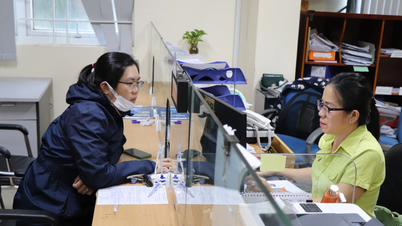 |
Hyundai's new Ioniq 5 has a self-assessment repair system. Photo: Car and Driver . |
Many car owners often change the oil, change the air filter or replace some simple components such as brake pads for their car themselves.
However, according to a car owner in the US, Hyundai made it difficult for customers when he wanted to change the rear brake pads for his electric car, even giving the feeling of hindering the user's right to repair the car himself.
Two Reddit posts sparked controversy when the owner decided to replace the rear brake pads, but was blocked by the company's diagnostic tool. In the post, he said he had done this on many other cars. But Hyundai's digital system essentially locks out anyone who isn't a certified technician, making it impossible for them to perform even basic maintenance.
The rear brake pads are related to the electronic parking brake. The parking brake must be completely removed and withdrawn to replace it, otherwise the new brake will not fit. In addition, the vehicle also needs a specialized diagnostic tool to recalibrate the engine to determine the appropriate amount of travel for the new brake pads.
In other words, even if you can manually remove the electronic parking brake, the car still needs to be calibrated to operate properly. Users can only use Hyundai's J2534 diagnostic tool, a Windows application that is only accessible through the company's technical portal.
Owners say the software requires a $60- per-week subscription fee, an approved hardware adapter that costs more than $2,000 , and a constant internet connection for authentication. But even with those conditions met, the software reportedly still doesn’t work properly on newer models like the 2025 Ioniq 5 N.
NASTF email about not allowing DIYers to repair cars. Photo: Reddit. |
The poster said he paid for the subscription and adapter, but it didn’t work. He was furious that the National Automotive Service Task Force (NASTF) had locked his account for not allowing him to make the repair himself.
He also pointed out the irony that Hyundai dealers don't even use this Windows tool. They are said to use a completely different software suite, running on Android, that works much more smoothly and efficiently.
According to Carscoops, changing brake pads is one of the most basic car maintenance tasks, and the fact that Hyundai’s system interferes is a bad setup.
For decades, car enthusiasts and independent mechanics have fought for access to manufacturers’ diagnostic tools and repair data. When even basic wear parts like brake pads require proprietary factory authentication, a debate rages in the community.
Some say the automaker needs to take a serious look at the situation, as it’s the people who want to fix their cars that really care about their cars. Hyundai says it’s looking into the situation and will respond when it has more information.
Hyundai’s use of a component validation tool to allow replacements is reminiscent of Apple. Since 2019, iPhone models have had to run Apple’s verification software when replacing batteries, and if they fail to authenticate, they will continuously warn.
Source: https://znews.vn/den-thoi-sua-xe-kho-nhu-thay-pin-tren-iphone-post1601746.html







![[Photo] Deep sea sand deposits, ancient wooden ship An Bang faces the risk of being buried again](https://vphoto.vietnam.vn/thumb/1200x675/vietnam/resource/IMAGE/2025/11/13/1763033175715_ndo_br_thuyen-1-jpg.webp)
















































































![Dong Nai OCOP transition: [Article 3] Linking tourism with OCOP product consumption](https://vphoto.vietnam.vn/thumb/402x226/vietnam/resource/IMAGE/2025/11/10/1762739199309_1324-2740-7_n-162543_981.jpeg)







Comment (0)